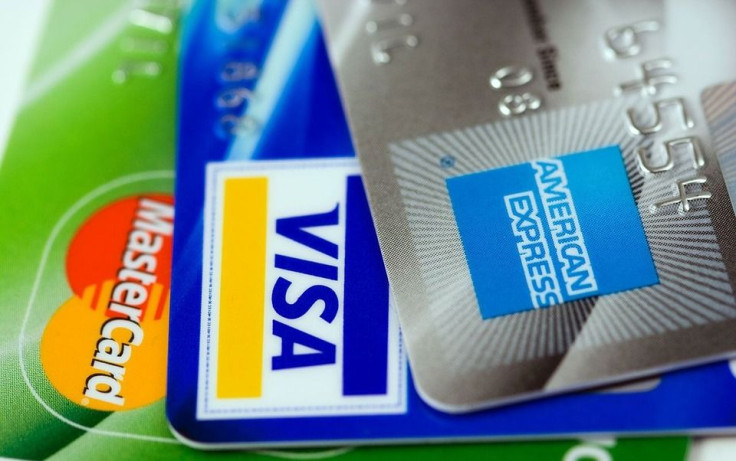Coronavirus Economy: Are Americans Piling Up Credit Card Debt During Pandemic?

KEY POINTS
- Millennials and those living in the West were more likely to have credit debt resulting from the coronavirus pandemic than older Americans or those from other geographic areas
- Credit card debt topped $1 trillion last year with the average balance nearly $8,400
- 9% of credit cardholders say they are unable to make payments on their balance
Nearly a quarter of Americans saw their credit card debt increase in April as a result of the coronavirus pandemic, a YouGov/CreditCard.com poll indicated Monday. The number of Americans with credit card debt increased 4 percentage points for the month.
The poll of 2,552 adults taken April 15-17 indicated 47% of Americans currently have credit card debt, up from 43% in March. Twenty-eight million of the 120 million people carrying credit card balances said the debt was a result of the COVID-19 pandemic, which forced much of the nation’s economic activity to come to a halt.
Americans carried an average $8,398 balance on their credit cards in the third quarter of 2019, totaling more than $1 trillion, debt.org reported. That number is expected to have swelled in recent weeks.
Millennials have fallen further into debt than older generations, with 34% saying their balances increased, compared with 23% of Gen Xers and 15% of baby boomers.
Geographically, 30% of those in the West said coronavirus had forced them to increase their credit card balances, compared to 22% in the Northeast, 21% in the Midwest and 20% in the South.
Thirteen percent of credit cardholders say they can pay only the minimum balance while 9% say they can pay nothing at all.
“Between this and the Great Recession, it’s no wonder millennials have had a harder time accumulating assets than Gen Xers and boomers,” CreditCards.com analyst Ted Rossman said in a press release. “Some older millennials also hit adulthood right around the dot-com bust and 9/11. Adjusted for inflation, average hourly wages have barely budged in 50 years, but some major expenses such as housing and college have grown exponentially.”
The survey comes as credit card issuers are beginning to lower credit limits, fearing defaults as the economic situation worsens across the country.
Since mid-March, some 30 million Americans have filed initial unemployment claims, and the unemployment rate for April is expected to be near 20% when the figures are released Friday, a level not seen since the Great Depression.
Government reports last week indicated the U.S. economy contracted 4.8% in the first quarter as the effects of the pandemic were first surfacing. The second-quarter contraction is expected to be much sharper.
Rossman noted during the Great Recession, 20% of credit card companies cut credit lines for customers with prime credit scores and 60% cut them for subprime cardholders.
“Banks are once again very nervous about the state of the economy and the job market, and they’re pulling back on their risk exposure,” Rossman warned.
© Copyright IBTimes 2025. All rights reserved.



















